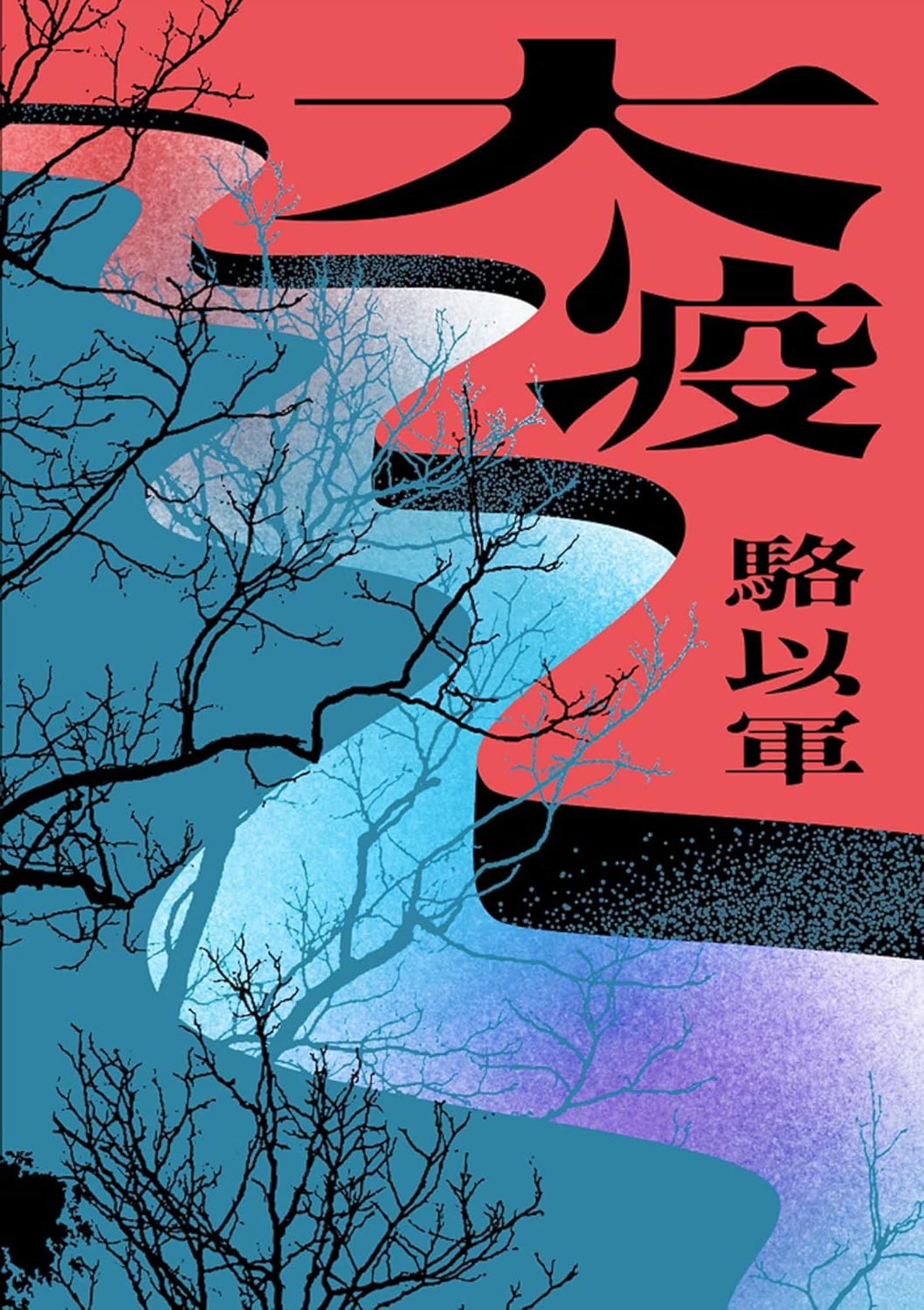大疫 (The Pandemic) is a Chinese postmodern novel by Taiwanese author Luo Yi-jun. Taking inspiration from Boccaccio’s Decameron written in 1353, the novel set in Taiwan features ten characters, including the owner of a river valley, his wife, a monk, a director, and three young girls, sheltering in a secluded valley after COVID-19 turns deadly and destroys the rest of the world’s population. In this dystopian context, they tell each other stories as they “do not want to go insane” (“不願意瘋掉”) (chapter 2). Unlike the original Decameron, the characters never return to civilization and normalcy, but instead discover that they are viruses themselves, preserved by future humans to live in a simulated world. The circumstances of the story amplify the existential dread of surviving COVID-19 in the real world and speak to the importance of remembering and grieving for those who were lost to the virus.
The novel has a conversational and fragmented structure which follows the exchange of stories between the characters. Within their lengthy monologues, characters digress onto a different stream of thought, jump forwards or backwards in narrative time, or provide additional context, so the sequence of events in their stories becomes highly disjointed. In a metalepsis, the author directly explains his rationale for this structure, saying, “It is only the first few days that these ‘sole survivors of humanity’ have entered this river valley. They still have not found a way to tell stories, so please be patient and keep reading” (chapter 3). The fragmented nature of the character’s narratives and readers’ resulting confusion reflect the characters’ struggles to adapt to post-pandemic life and cope with the huge losses they suffered due to COVID-19. Individual disjointed timelines and prompts from the author propel the novel forward, creating a sense of timelessness in their isolation in the aftermath of the complete social collapse.
The characters tell stories of their spouses or love interests presumably killed by the virus, using storytelling as a method of memorializing these undeserved deaths. An unnamed character referred to only by the masculine pronoun “ta” (他), recounts the story of An, a girl he loved, whose life is marred by one disastrous event after another, as her previously happy marriage shatters after her husband’s suicide. Despite her misfortune, she remains optimistic about her life and goes to study art in Spain. However, she develops cancer around the time the COVID-19 outbreak begins. The final scene, where her hospital gets overrun with COVID-19 patients and she is eventually abandoned in her ward as the patients, doctors and nurses collapse from COVID-19, accentuates the cruelty of death. The story conveys the sense of heightened grief and frustration regarding people who had been able to stay resilient amid difficult times all their lives, but whose bright futures were taken away by COVID-19.
In his book, Luo reimagines COVID-19 as a virus so deadly it brings about the apocalypse. As the novel shuttles between past and present, fiction and reality, it evokes our own fragmented memories of the pandemic, and perhaps even the pandemic itself as a fragment of memory that is so bizarre, so devoid of features, that it fails to fit in with the rest of our life experiences. Just as the characters are transformed from ordinary Taiwanese citizens to the sole survivors of the human race due to COVID-19, the pandemic also caused temporary ruptures in our personal and social identities by grounding us away from the activities we love and cutting us off from our families and social circles. The resulting reflections on memory, grief, and existence still ring true for readers who lived through the real COVID-19 pandemic, as we come to terms with the loss of members of our community and the societal disruptions caused by COVID-19.

Image Captions:
Cover image of 大疫[The Plague] by Luo Yi-jun, Mirror Fiction (Taiwan), 2022.Citation: Luo, Yi-jun. 大疫 [The Pandemic]. Mirror Fiction (Taiwan), 2022. English translation by Law Hong Yin Louisa. FICTION, NOVEL, 2022 | CHINA. ll
Source Type: Fiction
Country: China
Date: 22-Aug-2022
Keywords: Alternate Universe, Decameron, Grief, Taiwanese, Postmodern, and Post-pandemic